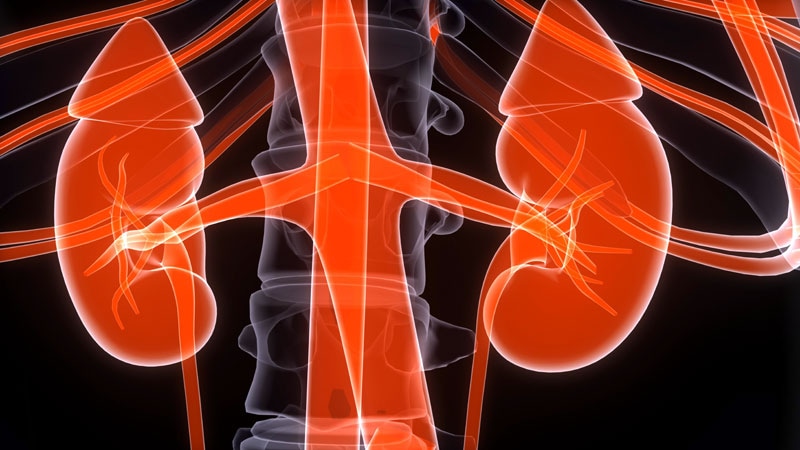

There is controversy about the options for patients with refractory arterial hypertension, a topic that was addressed in the panel moderated by Dr. Oriol Rodríguez, Interventional Cardiologist at the Germans Trias i Pujol University Hospital in Badalona, at the SEC 2023 Cardiovascular Health Congress.[1]

Dr. Miriam Sandín
Dr. Miriam Sandín, cardiologist at the General University Hospital of Alicante, argued that optimized medical treatment should be sufficient, but it is important to see if the patient only has hypertension or something else, such as target organ damage or some comorbidity to stratify. appropriately the risk. “In many cases, high blood pressure is not resistant, but is not well treated.”
The specialist recalled that refractory arterial hypertension is that with figures above 140/90 mm Hg despite an adequate lifestyle and treated with three drugs at correct doses. It must be confirmed with ambulatory blood pressure monitoring or self-measurement of blood pressure, review compliance and rule out secondary causes. “When this is done, refractory arterial hypertension occurs in less than 5% of cases, but they have a greater risk of organ damage, deterioration of kidney disease and premature cardiovascular complications.” The guides of the European Society of Hypertension (ESH) of this year indicate that true refractory arterial hypertension “is more common in people over 75 years of age, men, African ethnicity, people with obesity, high alcohol and sodium consumers, patients with low income, depression” and high values of blood pressure at the time of hypertension diagnosis and a 10-year cardiovascular risk score >20%.[2]
True refractory hypertension?
Dr. Sandín mentioned a study that evaluated the effect of refractory arterial hypertension in terms of mortality and heart failure in more than 1,000 patients who had long-term follow-up, who were classified into four categories (true refractory arterial hypertension, pseudoresistant and well and poorly controlled artery), observing that the first group has a much worse prognosis in terms of the aforementioned conditions.
“Therefore, we must ensure that it is true refractory arterial hypertension, in addition to checking therapeutic compliance, since up to 50% do not comply adequately; secondary hypertension must also be ruled out.”
Regarding the correct therapeutic approach: “The fundamental pillar is triple therapy with an angiotensin-converting enzyme inhibitor or an angiotensin 2 receptor antagonist, a calcium antagonist and a diuretic, preferably a thiazide.” You should start with double therapy and if it is not enough, do triple therapy; If it is still not controlled, we would be facing a refractory disease and spironolactone would have to be given if kidney function allows it. When it is still not enough, it is advisable to “combine a beta-blocker or an alpha-blocker at the central level or use doxazocin.”
The PATHWAY-2 trial “studied the most powerful drug to control refractory high blood pressure: spironolactone, which reduces blood pressure by 25 to 50 mm Hg, above doxazosin and bisoprolol, with a great safety profile and few side effects” . Another option is the use of amiloride at high doses of 10 to 20 mg, although since the tablets are 5 mg, their number and lack of therapeutic compliance increases.
Drugs that come with success
Dr. Sandín emphasized new drugs, “such as finerenone, already approved for diabetic kidney disease and which has demonstrated effectiveness in refractory arterial hypertension.” Exarenone, currently marketed in South Korea, and KBP-5074 (ocedurenone), which has demonstrated high efficacy in reducing hypertension, although still in its infancy in studies, lowers systolic and diastolic pressures.
In addition, “a phase 2 clinical trial is underway with an aldosterone synthesis inhibitor that acts in a step prior to the angiotensin-converting enzyme inhibitor and the angiotensin 2 receptor antagonist, reducing systolic and diastolic pressures with a good safety profile and reduces aldosteronemia”.
The specialist highlighted new drugs for comorbidities, such as glucagon-like peptide 1 (GLP-1), which causes moderate reductions in hypertension without increasing heart rate at the expense of reducing the patient’s weight. And the sodium and glucose cotransporter type 2 (SGLT2) inhibitors that work well in any case of high blood pressure. On the other hand, “it is feasible to use sacubitril/valsartan instead of angiotensin 2 receptor antagonists, because it improves blood pressure control and functional class, where special effectiveness was seen in the case of refractory arterial hypertension.” “.
Renal denervation: an alternative

Dr. Tamara García
Dr. Tamara García, assistant of Cardiology at the Marqués de Valdecilla University Hospital in Santander, took up the defense of renal denervation as an appropriate option to address refractory arterial hypertension.
In the latest European hypertension guidelines, a IIB indication is given for renal denervation in patients with resistant hypertension and an estimated glomerular filtration rate of 40 ml/min/1.73 m2.[2] There are several studies in recent years with diverse results, both with radiofrequency (SPYRAL HTN-OFF MED) and with ultrasound (RADIANCE HTN-SOLO), which indicate that “versus doing nothing there are notable downward changes in the blood pressure of denervated patients”.
Other studies indicate “that this effect is maintained for three years with the radiofrequency technique. The punctual systolic pressure was recorded in decreases of up to 20 to 30 mm Hg and there are even records for five years. It was also seen that the effect achieved is maintained 24 hours a day.” It has also been studied in various subgroups of refractory patients, such as those with diabetes, heart failure, atrial fibrillation, elderly people, myocardial infarction and stroke “and it was shown to be effective in all of them, regardless of the number of drugs the patient took. at the time of performing denervation”.
Low risk and cost-effective
Regarding the cost-effectiveness of the procedure, the specialist mentioned the Spanish study by the Spanish Hypertension Society-Spanish League for the Fight against Arterial Hypertension (SEH-LELHA), pending publication, which indicates that if blood pressure can be lowered systolic blood pressure between 5 and 6 mm Hg, “we would lower the real risk in ten years in terms of mortality, stroke, acute myocardial infarction and heart failure, setting the cut-off point at 25,000 euros, the independent cost-effectiveness is below (15,000 euros) and in more serious scenarios, lowering the systolic pressure to 21 mm Hg, the cost is estimated at 2,800 euros.”
Dr. García pointed out “the importance of doing it in specialized centers and taking the patient themselves into account when making decisions.” Likewise, according to a consensus of the SEH-LELHA and the association of interventional cardiology, the indications for the technique include patients with uncontrolled hypertension, those who suffer from hypertensive crises, low compliance, organ damage and high cardiovascular risk.[3] “In patients not controlled with three drugs, there is already support from the guidelines for considering it, therefore, by confirming in three months that refractory arterial hypertension is real, we rule out secondary hypertension, we assess the cardiovascular risk and if there is not good control, we “we denervate.”
For her part, Dr. Sandín commented that “the guidelines recommend denervation with IIB, but the use of spironolactone has recommendation I, it is easy to administer, safe and cheap, so it should be used before the procedure in patients who are not doing well despite being treated with three drugs.
Many issues to resolve
Dr. García reflected on the somewhat older trials with renal denervation, which in her opinion lack clinical quality criteria. Very few are multicenter with simultaneous control, they lack adequate masking, with ambulatory change in blood pressure as the primary outcome, as well as the use of less advanced denervation techniques.
A meta-analysis confirms that only 9 of the 18 trials met all the criteria, “showed variable results regardless of the level of scientific quality and we lack direct comparisons of this technique versus intensified pharmacotherapy. To date there is no trial that compares with standard quadruple therapy,” the expert emphasized. “Denervation favors tolerability and therapeutic compliance, but durability is not clear because there are no very long-term follow-ups, and the cost probably favors medication.”
Dr. Sandín also highlighted that many issues remain to be resolved regarding renal denervation: “No consistent parameters or biomarkers of response to treatment have been determined, repetition of the procedure has not been investigated, there are no catheters for denervation transradial and there is a lack of well-designed profitability studies of the technique, among other factors.
Advance it in certain patients
Dr. García pointed out: “The guidelines consider as a point of interest to access denervation if the patient has side effects from the medication, which greatly influences their quality of life.”
Currently we consider denervation the greater the patient’s cardiovascular risk, but we also wait until the load of antihypertensive medication is very high, some have six or seven drugs, “perhaps we should act sooner with those who have organic damage and with young people who have many years of hypertension ahead of them,” said the specialist.
Finally, as reflections on his position, he pointed out: “The fact that a patient does not have therapeutic compliance should not be an exclusion criterion; the doctor should not enter into value judgments, he only wants the patient to be controlled; it is an alternative for people with side effects that worsen their quality of life and we should not think about denervation as the last step, except after the failure of triple therapy.
Only 30% of patients with hypertension who receive treatment have adequate control, which creates a problem when cataloging their risk of developing events in the future; In this sense, renal denervation has robust evidence that it helps to lower blood pressure levels, in many cases very significantly, “which makes it another treatment alternative in these patients and the guidelines today state this.” , with a level of evidence similar to that of beta-blockers and alpha-blockers or aldosterone antagonists,” concluded Dr. Rodríguez.
Dr. García stated that she participates in dissemination and training talks for Medtroni, and serves as an advisory board for Palex. Dr. Sandín has declared that she has no relevant financial conflict of interest.

